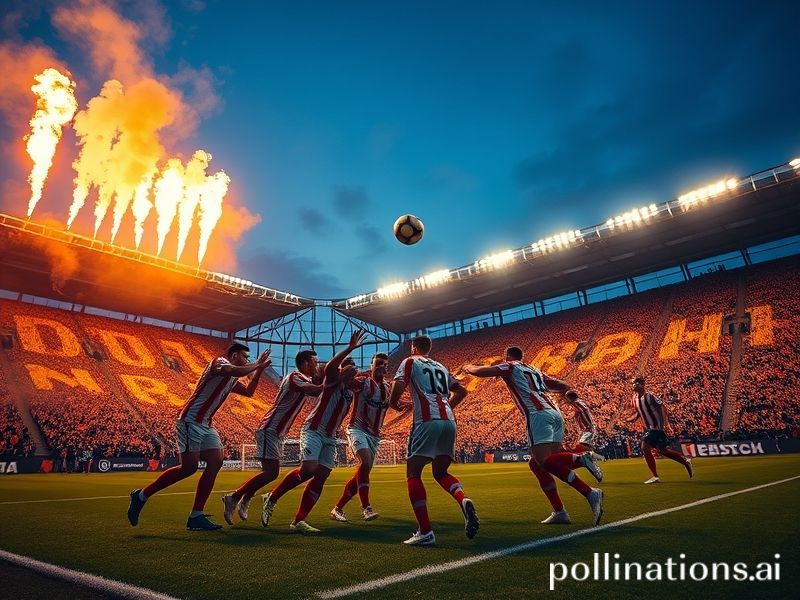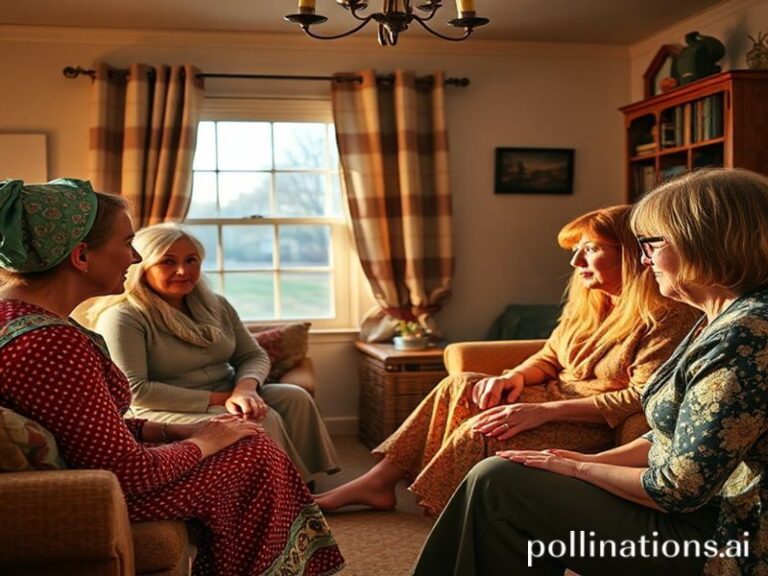Mainz 3-1 Dortmund: Global Schadenfreude as Goliath Trips on His Own Hype
Mainz 05 vs. Borussia Dortmund: When David Forgets His Slingshot and Goliath Stubs His Toe
By the time the final whistle blew in Mainz, the planet’s attention had already moved on: Tokyo salarymen were dozing on the last train, New York traders were refreshing their Bloomberg terminals, and a lone analyst in São Paulo was wondering why Bundesliga match-day eight felt like a geopolitical Rorschach test. Yet the 3-1 scoreline—polite, almost apologetic—was less a football result than a gentle reminder that even in the age of satellite surveillance and algorithmic certainty, human beings can still bungle the obvious.
Mainz, a city whose cathedral towers over the Rhine like a medieval LinkedIn profile picture, rarely makes the front page. Its football club, 1. FSV Mainz 05, is best known (to the extent it is known at all) as the place that once incubated Jürgen Klopp, the man who later turned Dortmund into a heavy-metal meme and Liverpool into whatever Liverpool are now. On Saturday, Klopp’s spiritual grandchildren arrived wearing fluorescent yellow, the highlighter-pen shade preferred by teams who insist they are “pressing for a higher purpose.” They pressed, all right—straight off a cliff.
Dortmund’s traveling supporters, a multinational swarm carrying more passports than the UN gift shop, had flown in on weekend fares subsidized by the same carbon offsets that will allow them to tweet “#ClimateAction” by Monday. They expected a gentle warm-up before Tuesday’s Champions League date with Newcastle, the footballing equivalent of a conference call you can mute. Instead they watched their defense perform interpretive dance routines while Mainz, a club whose annual budget is roughly what Dortmund spends on LED floodlights, scored three times with the casual malice of a landlord raising rent.
The implications ricocheted beyond the Rhine. In Singapore, risk managers at sovereign-wealth funds quietly marked down their BVB exposure—because nothing says “emerging-market volatility” like Emre Can misplacing a five-meter pass. Streaming servers in Mumbai coughed up the same pixelated despair to 12 million viewers, reminding the subcontinent that schadenfreude is the only German word that truly translates. Meanwhile FIFA’s Zurich HQ noted the result with the same glazed expression it reserves for any match not involving NFT ticket stubs.
For the wider Bundesliga ecosystem—Europe’s polite answer to the question “What if capitalism had a midlife crisis?”—the upset confirmed a pattern. Bayern Munich, the league’s perpetually winning credit-rating agency, have already opened an eight-point gap, presumably while calculating how many more Bavarian breweries they can annex. Dortmund’s stumble therefore threatens the fragile narrative that Germany still offers competitive drama, rather than a 34-week PowerPoint presentation on Bayern’s cash reserves.
And yet, there is something almost reassuring in Dortmund’s failure. In a world busy weaponizing everything from grain exports to Taylor Swift ticket queues, watching millionaires misplace their spatial awareness feels refreshingly human. The same week that AI-generated deepfakes convinced half the internet that the Pope had discovered streetwear, Mainz reminded us that genuine surprise still requires actual people screwing up in real time. There is comfort in incompetence; it suggests the algorithms haven’t quite won yet.
As the players trudged off, you could almost hear the global shrug: Tokyo’s sleepers missed their stop, New York’s traders shrugged at the ticker, and São Paulo’s analyst closed the spreadsheet, satisfied that the universe remains gloriously un-optimized. Somewhere in Liverpool, Klopp probably smiled, took a sip of coffee, and remembered that every empire—whether Roman, British, or fluorescent yellow—ends with someone forgetting to mark the far post.
Dortmund will still qualify for Europe, Mainz will still flirt with relegation, and the world will keep spinning at its usual indifferent RPM. But for ninety minutes on an otherwise forgettable Saturday, the game proved that entropy remains undefeated, and that, dear reader, is the closest thing to hope we’re allowed these days.







